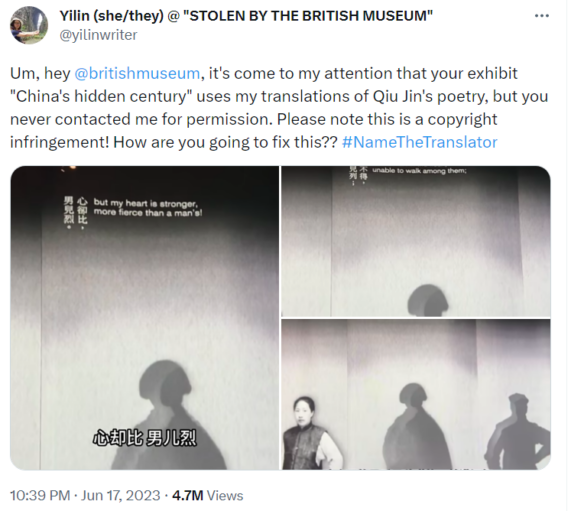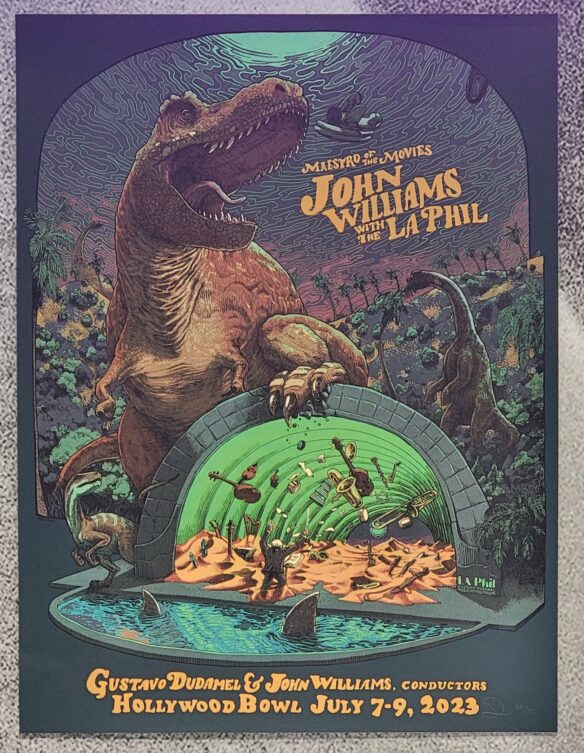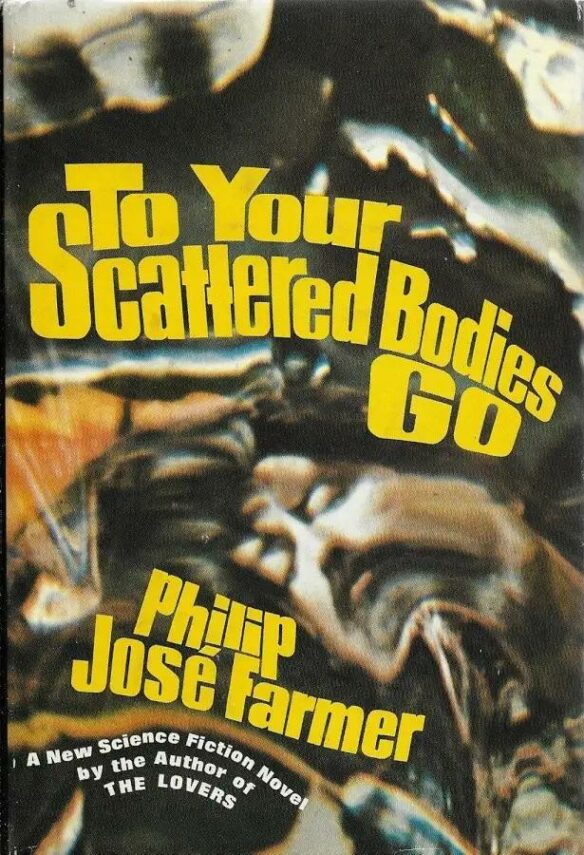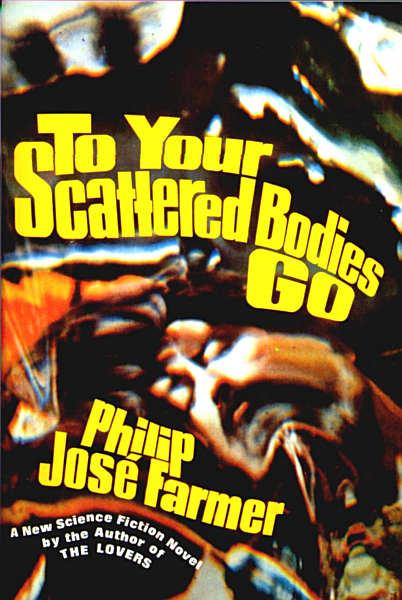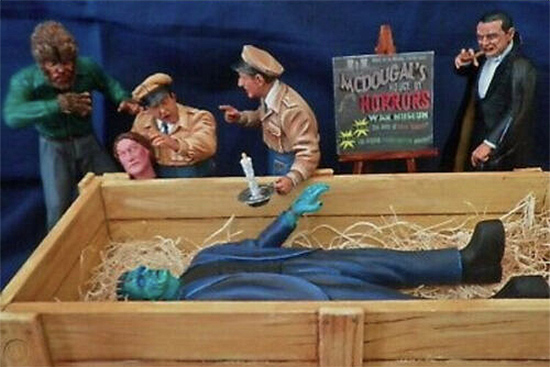(1) LUKYANENKO’S LATEST OPINIONS ABOUT UKRAINE. Chengdu Worldcon GoH Sergey Lukyanenko’s interview on Radio Komsomolskaya Pravda was transcribed for his website. Here are some computer-translated excerpts; “’By the end of 2023, the situation for Russia will be clearer’ – S. Lukyanenko”.
… M. Bachenina:
Well, then, who would you like to see at the head of Ukraine?
S. Lukyanenko:
This is a very difficult question, because, firstly, I would not want to see anyone there. As well as Ukraine itself. Because Ukraine, it was originally formed and is being formed as anti-Russia. That is, as long as Ukraine exists, it will act, unfortunately, as anti-Russia. It needs to be completely reformatted, it needs to completely change itself, including both the name and the territories, in order to create some kind of state that they want to create not as such an antagonist of Russia, an adversary and hater, but as a state that wants to represent something and live its own life. This will be a completely different state.
…M. Bachenina:
Many now say that Russia cannot lose, we have the gene of winners. Do you agree with that? And if so, what is the manifestation of this gene?
S. Lukyanenko:
I don’t know if we have a special gene for winners, but I know that we didn’t worry about that, and we will naturally win, it’s indisputable. I would just like this to happen without any unnecessary victims, not only ours, but also those deceived Russian people who now live on the territory of Ukraine. As a matter of fact, we are, of course, one people, just part of the people has been reformatted. It’s, you know, like Tolkien, at one time he described that orcs are the same elves, only who have been poisoned, changed and distorted.
I understand that here we probably have a conviction on both sides that the beautiful elves are us, and there, on the other side, the nefarious orcs. But we know that we are not orcs….
(2) WRONG. THANKS FOR PLAYING. Robin A. Reid devotes her latest Writing From Ithilien newsletter to those “Misquoting Tolkien”.
At some point before Covid (2019 maybe?), I attended a Tolkien Society event and heard a great presentation by Marcel Aubron-Bülles based on a project that he calls “Things J.R.R. Tolkien has never said, done, written or had anything to do with (TThnsdwohatdw)” where he debunks, through research, internet quotes that are not by Tolkien, or are corrupted versions of what Tolkien wrote (I might charitably call some of those paraphrases but they are attributed as direct quotes to Tolkien), or are quotes from Jackson’s films (though they also might be incorrectly quoted). It was fascinating and turns out to that wrong/fake quotes on the internet are legion.
I’m quite sure there will eventually be quotes from Rings of Power attributed to Tolkien!
I am happy in this post to be able to add another example to Marcel’s list (I have skimmed the fifteen blog entries and do not see it!)….
Read the post to find out which one she has in mind.
(3) HUGO RECEPTION MUSICAL CHAIRS. The Hugo Book Club Blog takes its turn at explaining the “The Numbers Game” – the fluctuating ceiling on how many team members get listed as Hugo finalists.
…Over the past decade, there has been a regularly recurring argument about the maximum number of individual contributors that can be listed for each group finalist on the Hugo ballot. This is more common with fan categories like fanzine, fancast, and semiprozine — in recent years some of the contributors lists for an individual publication have extended to several dozen names.
On one side of the argument are those who express logistical concerns about the size of the ballot. On the other side are those who want to ensure that everyone who contributed to the success of a work or publication are given nomination-level credit for their work….
Is this issue something that should be addressed in a new Worldcon rule?
…Those advocating for a more restrictive set of rules point out that the pre-Hugo reception already has capacity issues and logistical constraints. They also suggest that if everyone gets called a “Hugo finalist,” then the status becomes devalued. In addition, the distribution of perks to Hugo finalists, such as the rocketship pins, etc., increase costs on Worldcons.
Both of these positions have merit, and neither should be dismissed out of hand. But the debate should take place in the appropriate forum. The WSFS membership on whose behalf these awards are presented deserve a say in this matter, and the way to do this is to allow both sides to make their case at a business meeting….
(4) INTERNET ARCHIVE SUIT PROPOSED AGREEMENT. Publishers Weekly has more details: “Judgment Entered in Publishers, Internet Archive Copyright Case”.
…The jointly proposed agreement includes a declaration that cements the key finding from Judge John G. Koeltl’s March 24 summary judgment decision: that the IA’s unauthorized scanning and lending of the 127 in-suit copyrighted books under a novel protocol known as “controlled digital lending” constitutes copyright infringement, including in the IA’s controversial “National Emergency Library” (under which the IA temporarily allowed for simultaneous access to its collections of scans in the the early days of the pandemic, when schools and libraries were shuttered).
Most importantly, the proposed agreement includes a permanent injunction that would, among its provisions, bar the IA’s lending of unauthorized scans of in-copyright, commercially available books, as well as bar the IA from “profiting from” or “inducing” any other party’s “infringing reproduction, public distribution, public display and/or public performance” of books “in any digital or electronic form” once notified by the copyright holder. Under the agreement, the injunction will not be stayed while the case is on appeal—essentially meaning that once Koeltl signs off, the IA will have to take stop making unauthorized scans of copyrighted works available to be borrowed within two weeks of notification.
The parties left one final dispute for Koeltl to clean up, however: what books will be “covered” by the proposed injunction?
In a letter to the court, IA attorneys argue that “Covered Books” should be limited to books that are both “commercially available” and available in digital format. “This case involved only works that the Publishers make available as e-books and so the scope of any injunction should be limited accordingly,” IA attorneys argue. “Because the parties did not have the opportunity in this case to litigate the degree to which the unavailability of digital library licensing would affect the fair use analysis, it is inappropriate for an injunction in this case, by its breadth, to effectively prejudge the outcome of that question.”
Lawyers for the plaintiff publishers counter that the injunction should cover all unauthorized scans of commercially available books, whether the copyright holder has licensed a digital edition or not. “The law is clear that the right to decide whether or not to publish a book in electronic format belongs to its authors and publishers, not IA,” the publishers’ letter argues….
(5) MAGICAL HISTORICAL FICTION. [Item by SF Concatenation’s Jonathan Cowie.] This week’s B Beeb Ceeb Radio 4 programme Open Book takes a deep dive into magical historical fiction and includes an interview with Ann Patchett.
Available on BBC Sounds here. 28 minutes.

Octavia Bright talks to Ann Patchett about her captivating new novel. Tom Lake is the story of a young actor Lara under the spell of a future Hollywood star, but it is also about how she retells that story in later life to her adult daughters, and the power of storytelling itself.
Two masters of historical fiction, Laura Shepherd-Robinson and S. J. Parris (aka Stephanie Merritt) discuss the allure of magic and mysticism in their latest books set either side of the Enlightenment.
Plus Nana Kwame Adjei-Brenyah recalls the enchanting tale behind the book he’d never lend.
(6) IT ALL TIES TOGETHER. You may know about Philip José Farmer’s creation, but for the benefit of those born in the past few decades Keith Roysdon explains “The Wold Newton Universe: How a Fictional History Connects Literary Legends” at CrimeReads.
…Even a casual student of science fiction and comic-book history knows all about meteorites. They’re either the source of superheroic powers – or agents of destruction to people with fantastic abilities. (See: Kryptonite.)
Farmer chose the former concept and, in an unmatched bit of revisionist literary history, decided to use the Wold Newton meteorite to form an interconnected world for some of imaginative literature’s most fantastic characters. Not Superman, of course, because his off-planet origin is well known. But very nearly everyone else was included, as Farmer and his successors in tending the Wold Newton Universe would have it….
(7) OLD SFF LOOKS AT EVOLUTION. The Public Domain Review revisits “H. G. Wells and the Uncertainties of Progress” in this 2019 article.
For Wells the most basic level of uncertainty arose from the fear that the human race might not sustain its current rate of development. In his 1895 story “The Time Machine” he imagined his time traveler projected through eras of future progress: “I saw great and splendid architecture rising about me, more massive than any buildings of our time, and yet, as it seemed, built of glimmer and mist.”2 But the time traveler ends up in a world brought down by social division and degeneration. The brutal Morlocks are the descendants of the industrial workers, while the childlike Eloi are the remnants of the leisured upper classes. This prediction was based on his zoologist friend E. Ray Lankester’s extension of the Darwinian theory. Lankester argued that because evolution works by adapting populations to their environment, progress is not inevitable and any species that adapts itself to a less active and hence less challenging way of life will degenerate.3 Here was the model for a more complex vision of progress in which any advance would depend on the circumstances of the time and could not be predicted on the basis of previous trends….
(8) TODAY’S BIRTHDAYS.
[Compiled by Cat Eldridge.]
- Born August 14, 1929 — Richard Carpenter. Responsible for the simply superb Robin of Sherwood series. He also created Catweazle, the children’s series about an unfortunate wizard from the 11th century who is accidentally transported to the present day. And he was an actor who appeared in such shows as the Sixties Sherlock Holmes series, The Terrornauts film and the Out of the Unknown series as well. (Died 2012.)
- Born August 14, 1932 — Lee Hoffman. In the early Fifties, she edited and published the Quandry fanzine. At the same time, she began publication of Science-Fiction Five-Yearly which appeared regularly until ‘til 2006. The latter won the fanzine Hugo at Nippon 2007 (with Geri Sullivan and Randy Byers) after her death. She wrote four novels and a handful of short fiction, none of which are in-print. (Died 2007.)
- Born August 14, 1940 — Alexei Panshin. He has written multiple critical works along with several novels, including the Nebula Award-winning Rite of Passage and the Hugo Award-winning study of SF, The World Beyond the Hill which he co-wrote with his wife, Cory Panshin. He also wrote the first serious study of Heinlein, Heinlein in Dimension: A Critical Analysis. Let’s not overlook that he was the Hugo Award winning Best Fan Writer at NYCon 3. (Died 2022.)
- Born August 14, 1950 — Gary Larson, 73. Setting aside a long and delightful career in creating the weird for us, ISFDB lists a SF link that deserve noting. In the March 1991 Warp as published by the Montreal Science Fiction and Fantasy Association, he had a cartoon “The crew of the Starship Enterprise encounters the floating head of Zsa Zsa Gabor”.
- Born August 14, 1956 — Joan Slonczewski, 67. Their novel A Door into Ocean won the John W. Campbell Memorial Award. They won a second John W. Campbell Memorial Award for their Highest Frontier novel. They were nominated for an Otherwise Award for The Children Star novel.
- Born August 14, 1965 — Brannon Braga, 58. Writer, producer and creator for the Next Gen, Voyager, Enterprise, as well as on the Star Trek Generations and Star Trek: First Contact films. He has written more episodes of the Trek various series than anyone else has with one hundred and nine to date. He was responsible for the Next Generation series finale “All Good Things…” which won him a Hugo Award at Intersection for excellence in SF writing, along with Ronald D. Moore. He’s one of the producers of The Orville.
(9) WORLDCON THEMED FABRIC. Glasgow 2024, A Worldcon For Our Futures introduces Sara Felix-designed fabrics.

Sara Felix, Hugo award-winning artist and Glasgow 2024 designer, has launched six brand-new fabric designs on Spoonflower, now available for purchase.
Whether it’s a yard of fabric or a throw pillow, tea towels or a blanket, you can celebrate Glasgow 2024 with your choice of festive wares!
A word from Sara: “I created these fabrics because while I love the tartan, I wanted a few more options to play with. So I took the Armadillo we use on the bottom of some of our webpages and publication pages and made these. Of course, we had to have the logo on there as well!”
Browse the designs on Sara Felix’s website.
(10) PASSENGERS. “You’ll travel nearly a trillion miles in your lifetime. Here’s how” explains Space.com. This reminds me of a paragraph in a Vonnegut book that ends, “Who says there’s no such thing as progress?”
….In addition to rotating, Earth orbits the sun. That orbit is an ellipse, which causes our planet to occasionally move more quickly or slowly depending on its distance from the sun. But on average, Earth’s orbital speed is about 19 miles per second (30 km per second).
That’s about 600 million miles (1 billion km) every year. So over a lifetime, each of us travels roughly 50 billion miles (80 billion km) — which, again, dwarfs the distance we travel due solely to the rotation of our planet….
(11) MULTITALENTED JOYNER’S NEW BOOK. Jackiem Joyner, author of Zarya Episode II Sochi Unleashed, also is a contemporary saxophonist and music producer with a pair of number one hit songs and five top 10 Billboard under his belt.

In the second novel of his Zarya series, the fate of Cydnus, a highly advanced desert world, hangs in the balance. With oxygen levels beginning to deplete, this politically divided planet stands on the brink of an existential crisis.
In the heart of the advanced city of New Cebrenia City, Zarya, along with her father, Aaron, and friends Kizzy and Marco, must navigate a complex web of political strife. With Vice Chairman Eros’s dark plots threatening their progress, the security of their only political ally, the chairman, is under threat.
Their most powerful asset is Sochi, Zarya’s advanced AI Airboard. Yet, Sochi’s newfound ability to control other machines presents both significant opportunities and risks.
Meanwhile, Aaron embarks on a perilous journey into the cosmos, driven by desperation to resurrect a long-abandoned project that might be Cydnus’s last hope. His mission, shadowed by his past, is a race against time, with the future of Cydnus at stake.
Zarya Episode II: Sochi Unleashed delves into the intricate relationship between sentient beings and technology, bravery amidst uncertainty, and the struggle for survival. As Zarya, her allies, and Sochi traverse this journey, the tale evolves into a saga filled with challenges and triumphs. Welcome to Cydnus, a world teetering on the brink of an uncertain future, in this captivating narrative.
Available at Amazon.com and Amazon.ca.
(12) VIDEO OF THE DAY. [Item by SF Concatenation’s Jonathan Cowie.] Media Death Cult’s latest from Moid is a very brief (Hondo Cit) look at Japanese SF shot on location in a Japanese garden in Poole (Dorset, England, Brit Cit): “The History Of Japanese Science Fiction”.
[Thanks to Chris Barkley, Michael Toman, Cat Eldridge, SF Concatenation’s Jonathan Cowie, Anne Marble, Mike Kennedy, Andrew Porter, and John King Tarpinian for some of these stories. Title credit belongs to File 770 contributing editor of the day Daniel Dern.]

